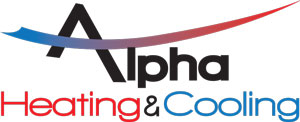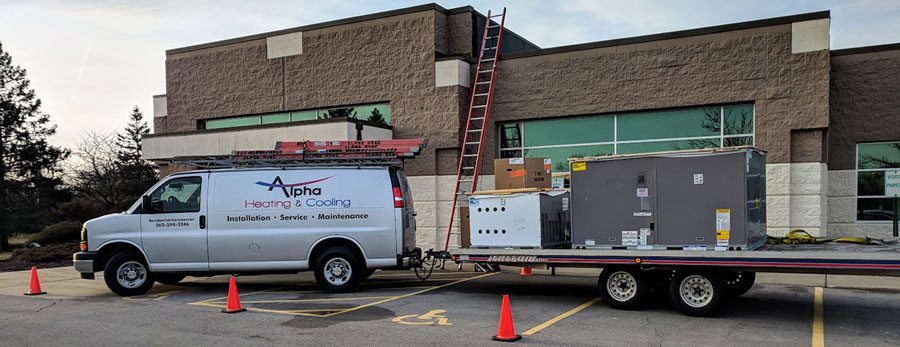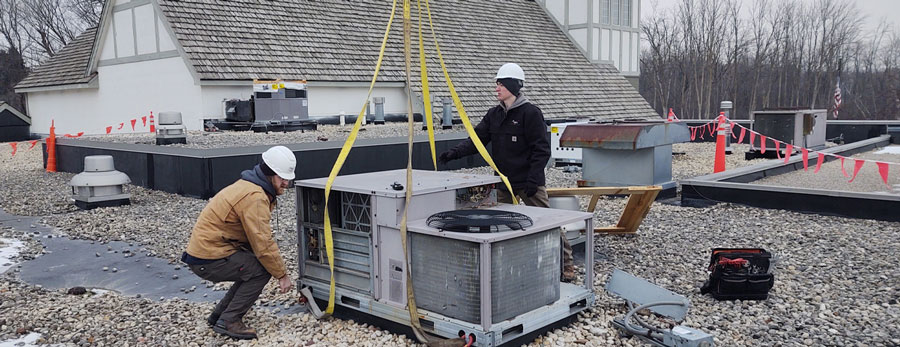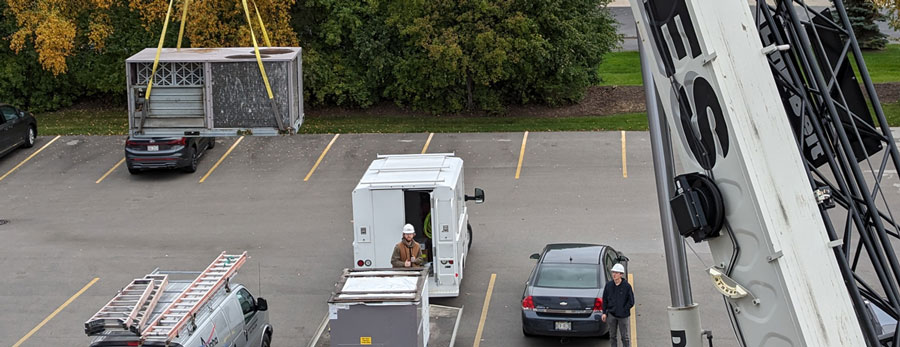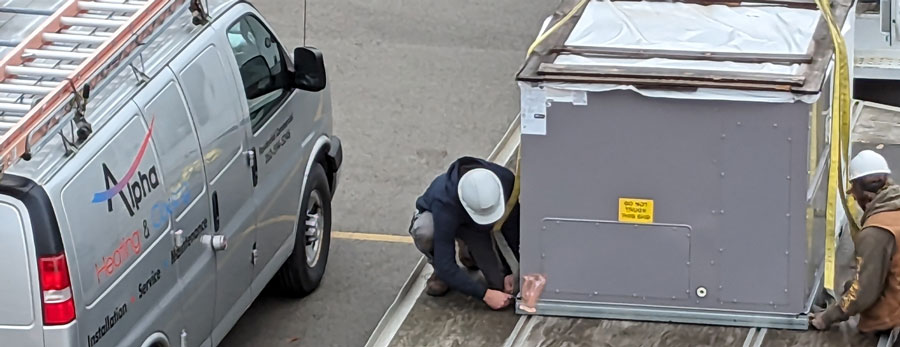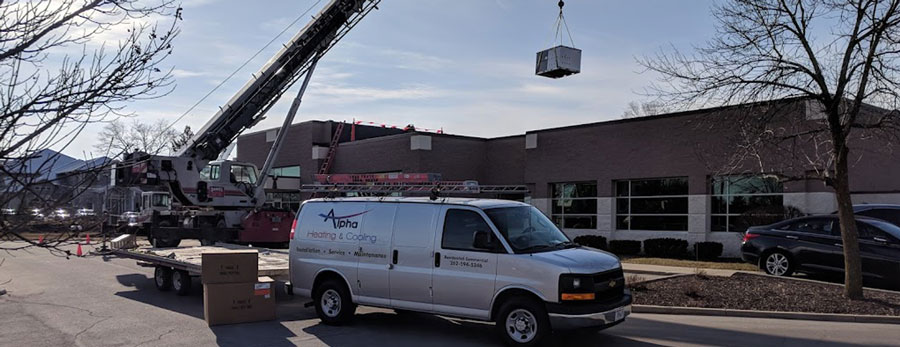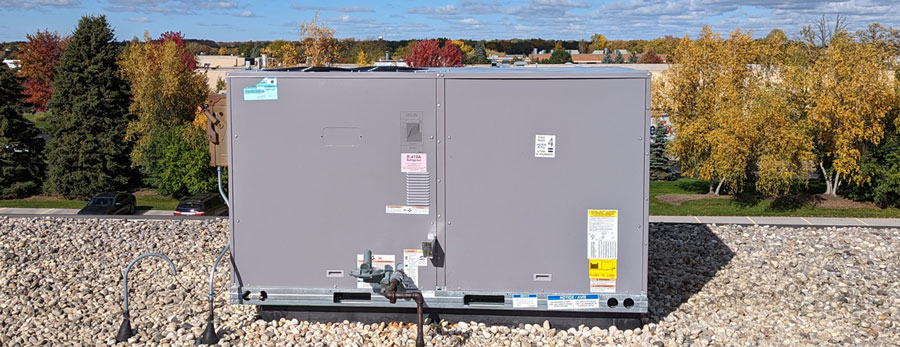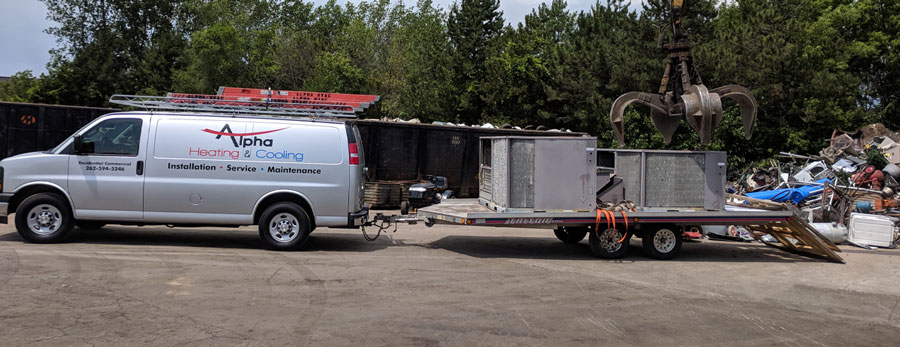Commercial HVAC Service
If you need emergency service please call this number.
We repair most makes and models
Call Kim: 262-594-5246
Or Text: 262-894-3245
Commercial HVAC systems are designed to provide heating, cooling, ventilation, and air quality control for large and complex spaces, such as office buildings, retail stores, hospitals, schools, manufacturing plants, and more. Here at Alpha Heating & Cooling we can manage and maintain most commercial systems. We’re also here to help guide you in deciding when it’s time to replace your old equipment. We specialize in planning multi-year equipment replacement programs to spread your property maintenance costs over a timeframe that works best with your budget.
Components and Functions Alpha Commercial HVAC Can Maintain:
Heating: Commercial HVAC systems include various methods of heating, such as furnaces, boilers, heat pumps, or electric heaters, to maintain a comfortable indoor temperature during cold weather.
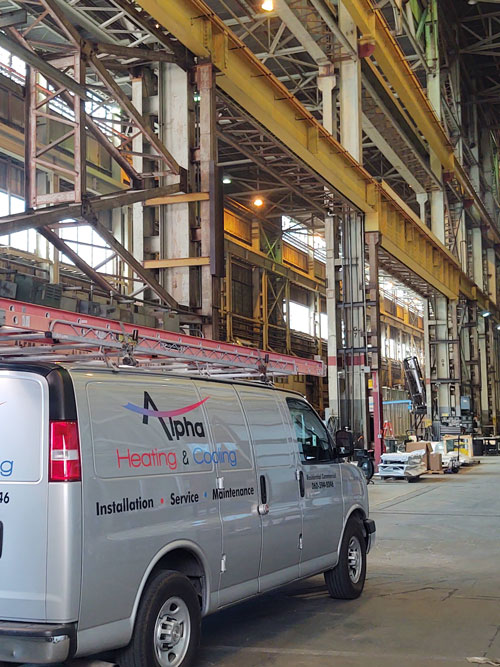
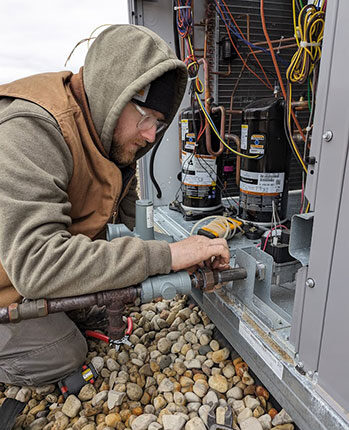
Cooling: Cooling is achieved through air conditioning units or central chiller systems. These systems remove heat from indoor spaces to maintain a comfortable temperature during hot weather.
Ventilation: Proper ventilation is crucial for maintaining indoor air quality. Commercial HVAC systems incorporate mechanical ventilation systems that bring in fresh outdoor air while expelling stale indoor air. This process helps control humidity and remove indoor pollutants.
Air Distribution: Ductwork and air distribution systems are used to transport conditioned air throughout the building. Dampers, diffusers, and registers control the flow of air to individual rooms and spaces, ensuring even distribution.
Thermostat and Control Systems: Commercial HVAC systems are typically controlled by a central thermostat or building management system (BMS). These systems allow for precise temperature and humidity control, scheduling, and energy management.
Air Filtration and Purification: Commercial HVAC systems often include air filtration and purification components to remove allergens, dust, and pollutants from the air, enhancing indoor air quality.
Energy Efficiency: Energy efficiency is a significant consideration in commercial HVAC systems to reduce operating costs and environmental impact. Variable speed motors, energy recovery systems, and programmable thermostats are some features that help improve efficiency.
Zoning: Zoning systems divide a commercial building into different zones with independent temperature control. This allows for personalized comfort and energy savings in areas with varying occupancy and temperature requirements.
Maintenance and Service: Regular maintenance and servicing are crucial to keep commercial HVAC systems running efficiently and to extend their lifespan. Maintenance tasks include cleaning coils, changing filters, and inspecting components for wear and tear.
Compliance with Codes and Regulations: Commercial HVAC systems must comply with local building codes and regulations, which often include requirements for energy efficiency, ventilation rates, and indoor air quality.
